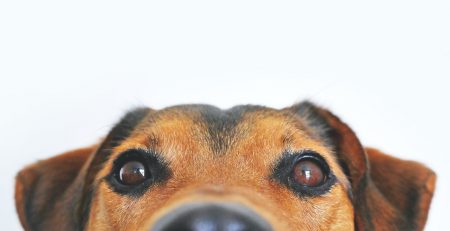Top Ten Most Independent Dog Breeds
Maybe you adore dogs, but fear you will not be able to have one because you work full time. It is true that some dogs don’t cope well with being home alone. Fortunately, there are several breeds that are not so dependent on their people, and can spend a few hours home alone.
Keep in mind that even the calmest, most independent dog should not be left alone for too long. Dogs are social animals, and enjoy your company. Even if you choose an independent dog, make sure you’ve allocated enough time for you to properly feed and exercise your dog, or invest in a good dog-walker or doggy day-care.
Chow Chow: 
The Chow resembles a small bear, with a thick fluffy coat and a wrinkled face. Clever but stubborn, the Chow Chow has a certain cat-like independence, often picking a family member that they are particularly fond of as their favourite person. These dogs typically do not mind spending some time alone; though you must make sure they get enough exercise. That thick coat means that the Chow Chow is most comfortable in cooler climates, and is happy to spend time outside with you. That said do not leave your Chow Chow out in a garden or yard all day: you cannot be sure if the weather will worsen, and even the fluffiest Chow will not appreciate being stuck in rain, hail, or blizzards.
Akita Inu:
The Akita Inu is the largest of the Spitz group of dogs, with a strong, almost bear-like build, a curly tail, and fuzzy triangular ears. Intelligent and strong-willed, the Akita Inu is best suited to an experience owner that can provide firm but firm handling. If well socialised, properly trained, and regularly exercised, you will find yourself with an affectionate, loving, and calm family dog. Your Akita will not mind being left at home for a few hours, though they will be more comfortable if they have a larger area; a small studio flat might be too cramped for comfort.
Pug:
Stubborn yet sweet-tempered, these little dogs make excellent family pets. Pugs are very easy-going and forgiving, and are a good choice for first time owners. Unfortunately, their short muzzles make them more prone to heat stroke, especially in the hot summer. If you need to leave your Pug home alone, make sure they have plenty of water and shady places. If the weather is warm, make sure to provide air conditioning or a fan, and perhaps even an ice pack wrapped in a towel for your Pug to cool down with.
Bernese Mountain Dog:
This breed has a gorgeous tricolour coat, with a long thick double coat that is prone to shedding heavily as the seasons change. Slow to mature but very sweet tempered, the Bernese Mountain Dog is affectionate and gentle, calm and intelligent. Happiest in a cool climate, the Bernese loves the great outdoors, and will happily join you and your family for walks and playtime in the snow. As with the Chow Chow, just because this breed copes well with cold weather doesn’t mean that they should be left outside while you are away. During the summer, provide plenty of fresh water for your Bernese, and perhaps leave the air conditioning running while you are out.
Greyhound:
Greyhounds are typically very relaxed, even lazy dogs. These lovable dogs have no special exercise requirements, and will be fine with a walk twice a day. Greyhounds are relatively quiet dogs, and adapt well to living in smaller homes. Their coats are quite thin, so make sure they have a warm place to curl up in the winter, or perhaps a cosy sweater.

Boston Terrier:
Although the Boston Terrier is small, this breed is usually rather sturdy. Most Boston Terriers are playful, and often make great family dogs. They are usually quite happy to live in apartments or smaller homes, provided that they get a proper walk and some playtime. As they have short muzzles, Boston Terriers are at risk of overheating in hot weather, so during the summer provide plenty of water and if possible a fan or air-conditioning unit.
Basset Hound:
Originally bred to hunt small animals such as rabbits, the Basset Hound has become a beloved pet. The Basset hound is short legged, with floppy ears and loose skin on the neck and face; that loose skin can give the Basset a sad expression. Their short coat is easy to care for, and comes in a variety of colours. The Basset hound is friendly and playful. They are patient, so get along well with children. The downside is that they can be stubborn, and love to bark.

Maltese:
The Maltese terrier is a small dog with long silky fur. They do not shed a lot, but if you choose to keep their hair long you will need to invest a lot of time in keeping it neat and clean; if you have a busy lifestyle it might be easier if your Maltese has a clipped coat. The Maltese is a wonderful companion and a born lap dog. Despite their affectionate nature, Maltese terriers do not mind spending time alone, as they tend to have relaxed personalities.
Shar Pei:
The wrinkled skin can give the Sharpei a deceptively grumpy face, disguising their loyal, intelligent character. They have a short coat that needs little grooming. As Sharpeis are often quite independent, they won’t be too bothered if you need to work away from home. Watch out for your Sharpei’s health, as they are prone to some genetic disorders, and tend to overheat in hot weather.

Basenji:
Sometimes called the African Bush Dog or Congo Dog, this breed is small and muscular, with a distinctive curly tail and upright ears. The Basenji does not bark, but they do make a yodelling noise due to the shape of their larynx. Basenjis are very curious and intelligent, but are also stubborn and can be difficult to train. This breed tends to be independent, and will be fine to spend a few hours alone, but will also be delighted when you return.
If you can’t bear the thought of leaving your puppy alone for any period of time and having a dog-friendly office, you might want to check out our article on the Best Dogs for the Office.
































